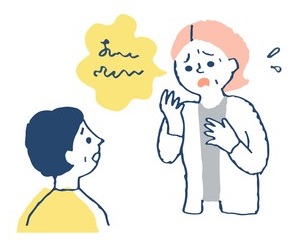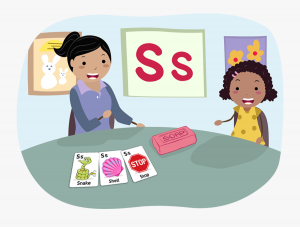
What is Speech Therapy and its effect?
What is Speech Therapy?
Communication is unique. We have a flexible system of putting across ideas, feelings, and beliefs in spoken and written form. When this get’s disrupted it is called a “Communication Disorder”.
A Communication Disorder affects the understanding of spoken or written language. Skills of speaking ability, speech sounds, fluent speech, voice, mental abilities, or swallowing. For example, Hearing Loss, Autism Spectrum Disorder, Cleft Lip, and Palate. Therapy is to provide intervention for persons with communication disorders.
What happens during Therapy?
Speech Therapy begins after a diagnosis of a communication disorder. A Speech Therapist works one-to-one with many methods and exercises. A therapy session includes many activities.
Speech Therapists interact and teach concepts through the implementation of play, talking, flashcards, picture books, or digital media personalized. Let’s understand what happens during speech therapy.
Speech Therapy for Late Talkers
Late Talkers are children who have late language emergence. Although some of these children get over their difficulties with no help. Most of them require formal speech therapy.
Speech therapy for late talkers revolves around intensive language stimulation. Many opportunities are given to the child.
Speech- Langauge Therapy for Persons with Apraxia
Firstly, some children or adults with brain damage may have speech issues. Seocndly, the same way multiple times, find it difficult to move their lips, tongue, and oral structures to say a word despite knowing the word or using different sounds for a given word. This is Apraxia of Speech.
Speech therapy for children or adults with Apraxia of speech helps plan for sounds in a word. Speaking more slowly and clearly is done with the practice of spoken words and sentences.
 Therapy for Stuttering or Stammering
Therapy for Stuttering or Stammering
Stuttering or Stammering is the interrupted flow of speech in children or adults. A person repeats words or parts of words (b-b-biscuit), get stuck on a word for a long time (b____biscuit), or stretch a sound for long while speaking (biiiiiiscuit). Further, therapy for stuttering focuses on the identification of stuttering events, speaking slowly and more fluently using certain techniques.
Moreover, therapy focuses on speaking in social situations, building confidence for public speaking, getting rid of negative emotions associated with speaking situations also.
To know more: Stuttering
Speech Therapy for Aphasia
Some persons develop problems with understanding, speaking, reading, or writing after a brain injury following a stroke or an accident. In other words, these are Persons with Aphasia. They have lost their language abilities due to brain damage. Speech Therapy for Persons with Aphasia starts with training them to understand their family members.
Additionally, the therapy progresses to tackle complex needs. For persons with severe problems, the therapist encourages and teaches an alternate mode of communication like using a picture book or using sign language.
To know more: Best apps for people with aphasia
Speech Therapy for Swallowing
Persons who have difficulty in swallowing report problems in eating.
Speech Therapists help such persons by suggesting modifications in the diet in terms of texture, and consistency. They help with posture correction or modification to promote easy and safe swallow to avoid choking. They work on strengthening muscles of chewing and swallowing.
Tips for Caregivers and Parents
- Early identification and early intervention are crucial.
- Further, finding the right professional for your loved one is of great importance.
- When referred to a Speech Therapist, describe and discuss your vision for your child to design a specific plan for his/her needs.
- Moreover, use changes suggested by your therapist at home.
- Therapy for most communication disorders is a long-term process.
- Discuss the program with your therapist and understand the process.
Consult us for speech assessment and treatment.
Click here to drop us your query and our team will get back to you.
- “Interventions for children and adolescents with stuttering” - April 7, 2023
- What is Speech Therapy and its effect? - December 21, 2022
- Dysphagic disorder in a cohort of COVID-19 patients - December 13, 2022



Leave a Comment
(4 Comments)
It is a fine article. The difference between ‘stuttering and stammering ‘ has been well-explained. All the best.
Very important article
Thanks for sharing the useful information about speech therapists.
You’re welcome!
Categories
Recent Posts